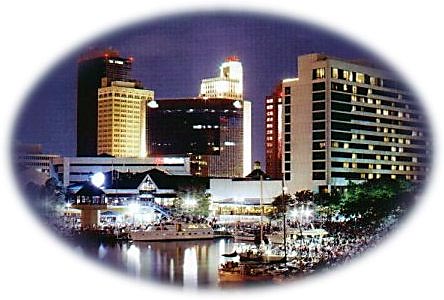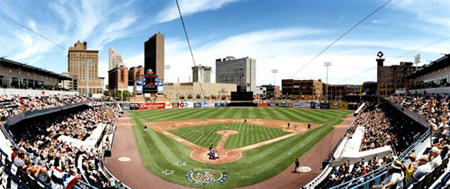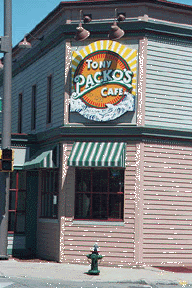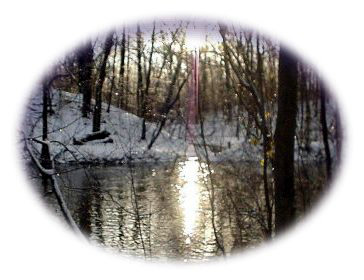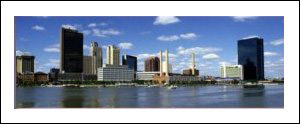|
Mary's Home Page |
|||
|
|||
|
About Toledo, Ohio
|
|||
|
Click here for a link that's full of great information about Toledo.
|
|||||||||||||||||||||||||||||||||||||||
|
Toledo (Ohio), city in northwestern Ohio, USA extending along
both banks of the Maumee River where it empties into Lake Erie. Toledo is a major port of the Great Lakes and famed for its
glass manufacturing. It is the seat of Lucas County. The city grew in a region known as the Black Swamp, a vast,
ancient lake bed on either side of the Maumee River. When drained in the late 19th century, the Black Swamp soils provided
a fertile base for agriculture which helps support the Toledo area today. The city's mean elevation is 179 m (587 ft). Toledo's climate is moderated somewhat by proximity to Lake
Erie. Extreme temperatures are rare, but the city has frequent cloudiness and high humidity. In January the average high temperature
is 0° C (32° F) and the average low is -8° C (17° F); in July the highs average 29° C (84° F) and lows average 16° C (61°
F). Annual precipitation totals about 810 mm (about 32 in).*1)
The Toledo region maintains a number of significant educational
and cultural institutions. In the city are the University of Toledo (1872), a state-supported facility and a major regional
university; and the Medical College of Ohio at Toledo (1964). In the metropolitan region are Bowling Green State University
(1910), in Bowling Green; and Lourdes College (1958), an independent Roman Catholic school in suburban Sylvania. The Toledo Art Museum possesses, in addition to its collection
of paintings and statuary, one of the world's finest displays of glass art. A symphony orchestra, ballet company, opera, and
several theater groups stage regular performances. The Wolcott House Museum Complex preserves six historic and authentically
furnished buildings to depict the life of 19th-century Maumee Valley residents, while the Wildwood Manor House opens to view
an industrialist's mansion. A unique underwater look at hippopotamuses is one of the attractions at the Toledo Zoo. The Toledo
Botanical Gardens occupy a site at the western edge of the city. Toledo's lake and river setting provides ample opportunities
for outdoor activities. The extensive Toledo Metroparks system includes trails along the towpath of a 19th-century canal,
a water-powered gristmill, and an historic battlefield. Along the lakeshore is Maumee Bay State Park and the Cedar Point National
Wildlife Refuge. While Toledo has no major league sports teams, it supports a
widely known minor league baseball team, the Mud Hens. Professional golf has long included Toledo as part of its venue. A
men's tournament is held annually at the Inverness Golf Course, while the women's professional circuit annually includes the
Belmont Country Club.
Manufacturing accounts for roughly one-fifth of all employment
in the Toledo metropolitan region. Traditionally two types of manufacturing have been important to Toledo's economyglass and
automotive. |
|||||||||||||||||||||||||||||||||||||||
|
*Article contributed By: Allen Noble, B.A., M.A., Ph.D. |

